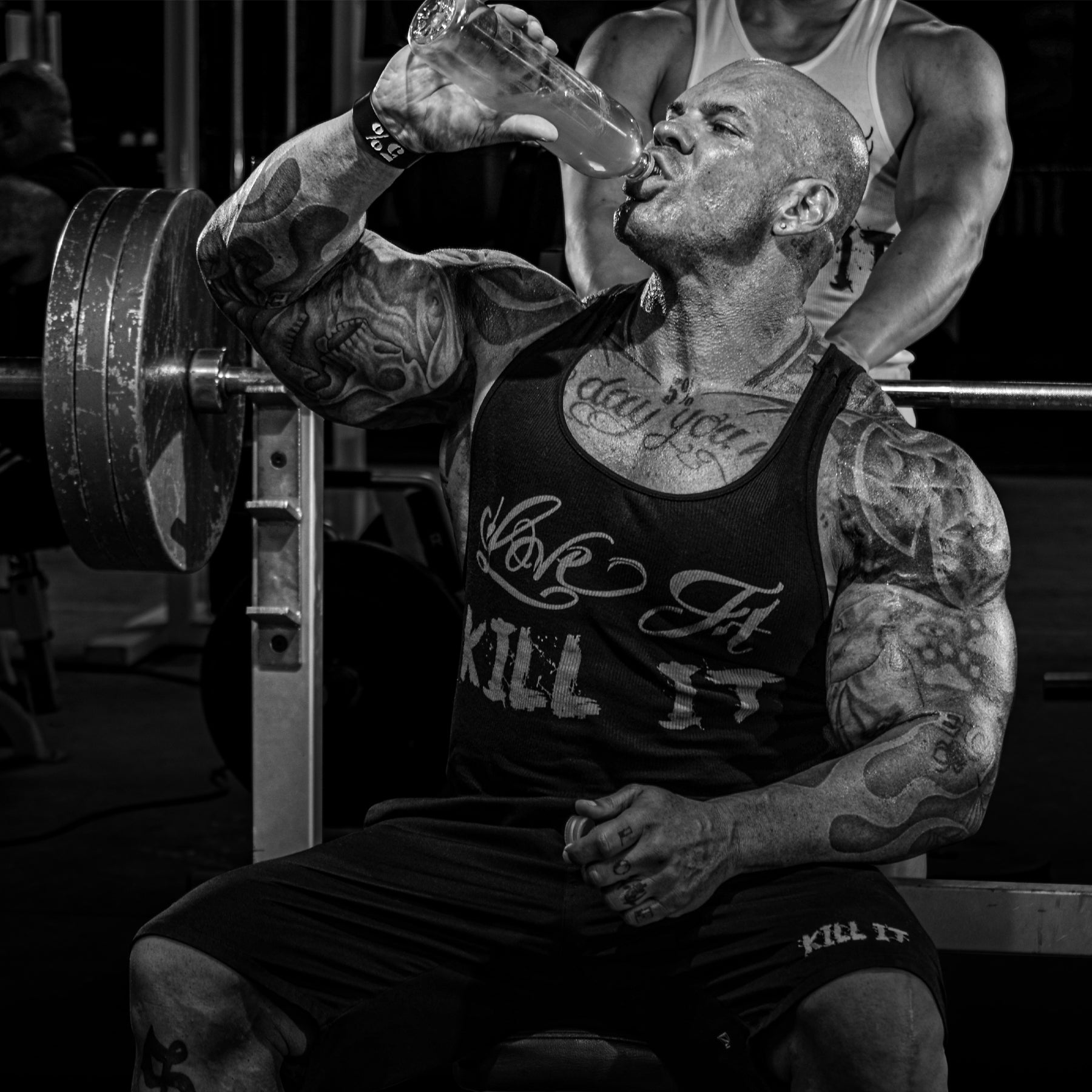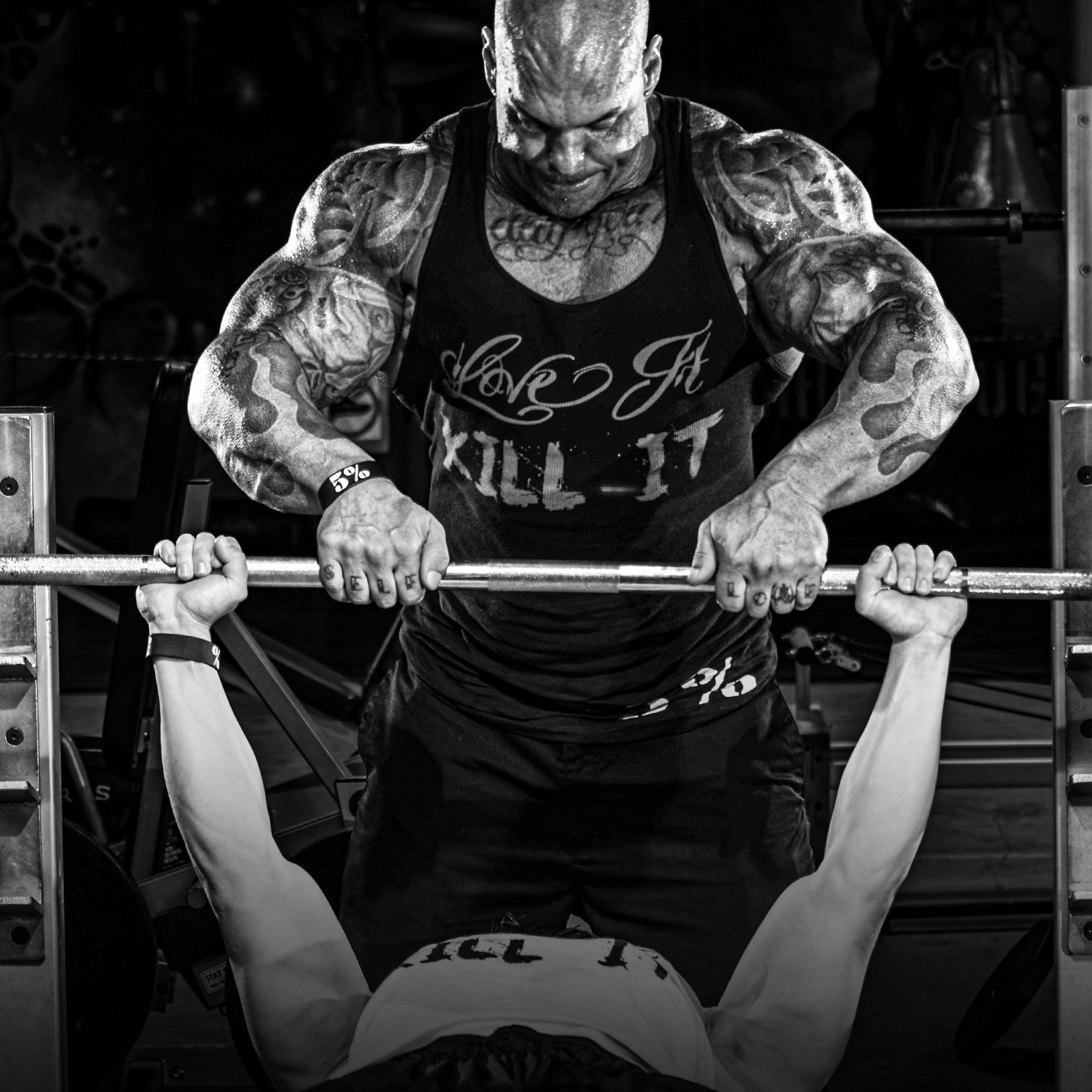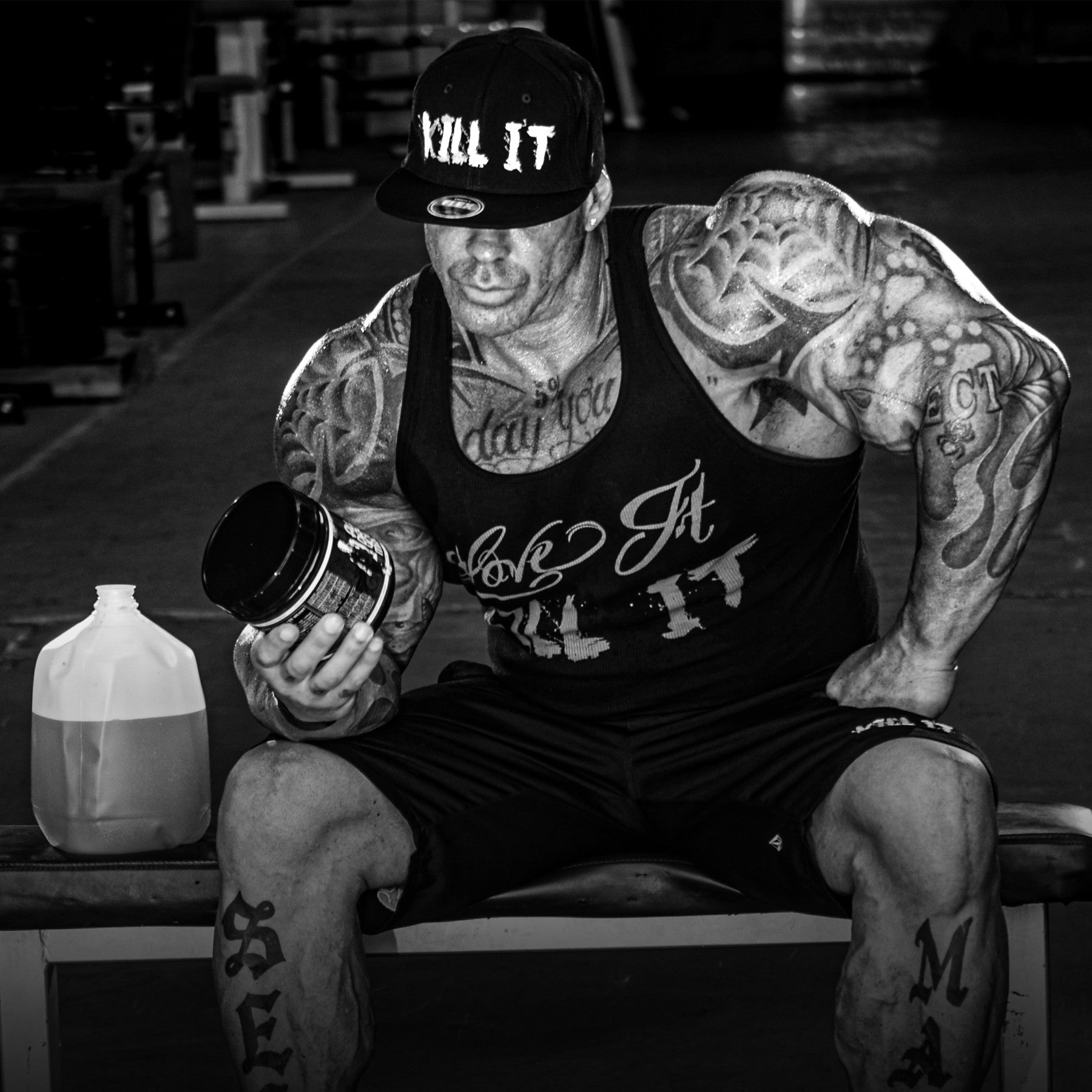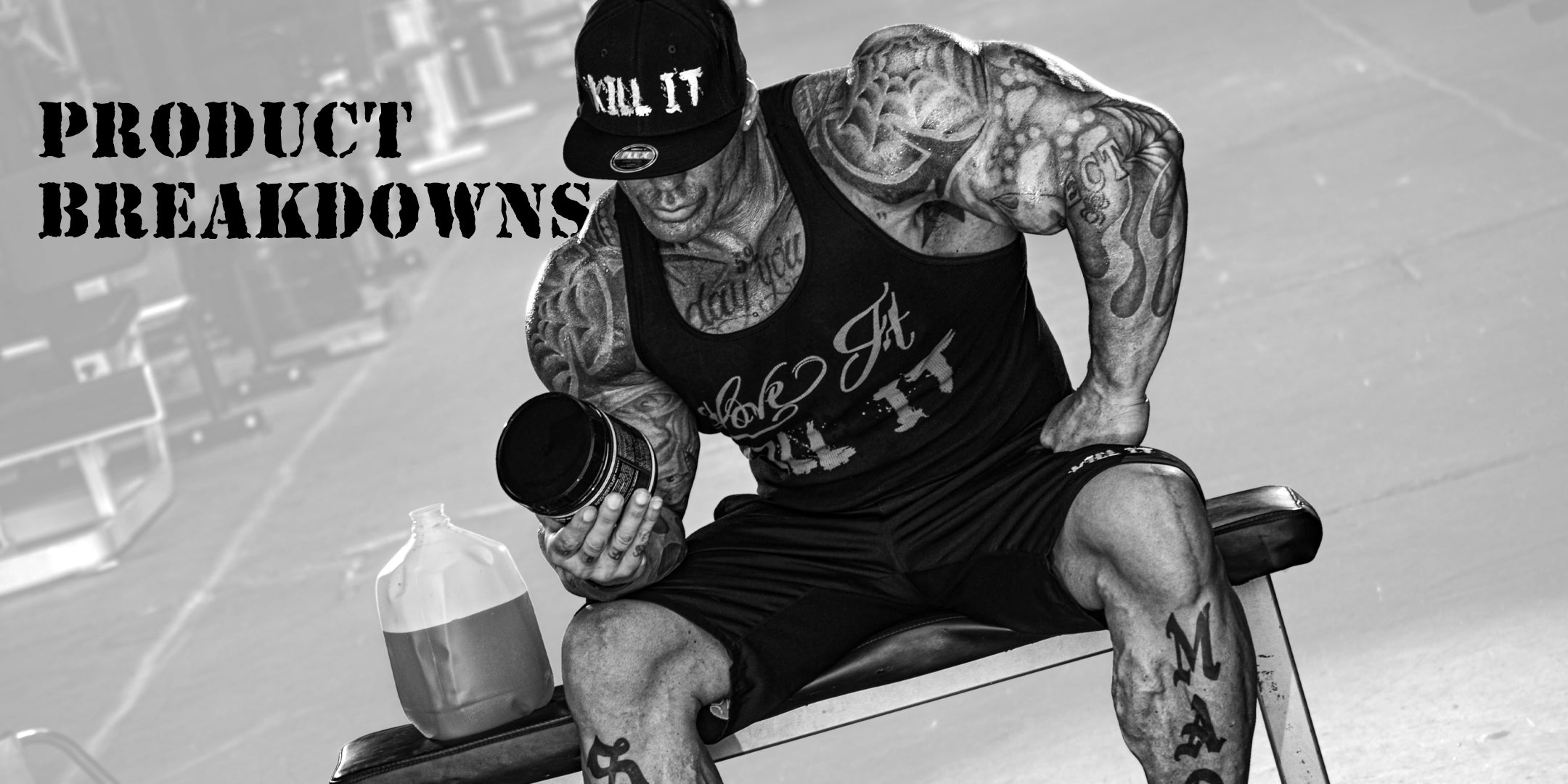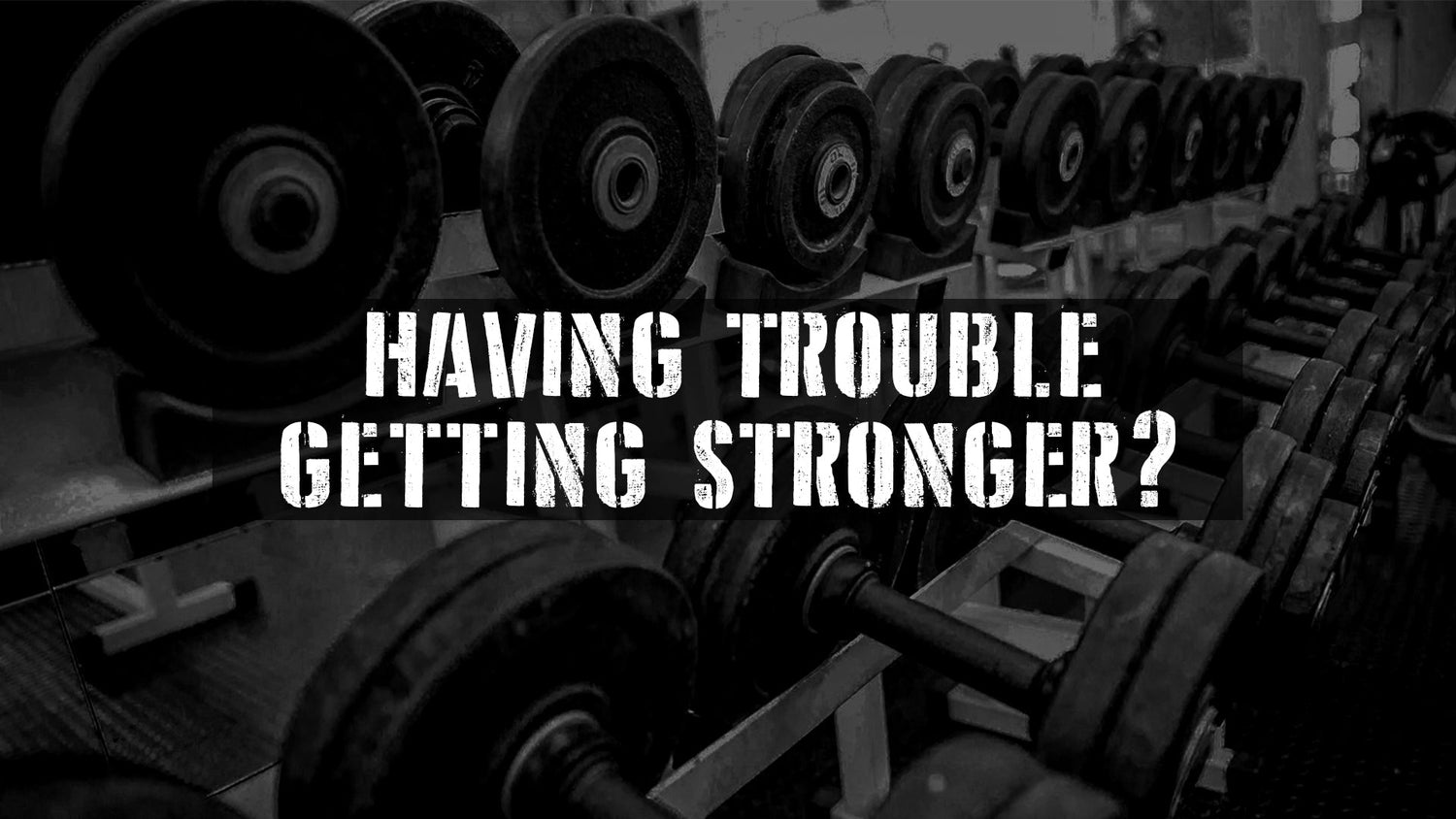Do you put in the work at the gym yet can’t seem to gain strength? It's frustrating, right? The time has come to make progress. In this article we will look at several reasons why you might be having trouble getting stronger.
Reasons Why You Might Be Having Trouble Getting Stronger
Reason # 1: You’re Not Training Hard Enough
It’s not an uncommon sight. A guy is pounding out a set using a fairly quick tempo throughout the exercise. He doesn't seem to be getting tired, the reps look easy. Then he hits the last 1-2 reps with just a hint of them being harder. You figure this lifter can keep going for another 3-5 reps, but he stops! Bottom line: he isn't training hard enough. If you stop your set when you could have done more, you need to put more weight on the bar and train harder.
Reason # 2: Not Using Progressive Overload Effectively
This is tied into not pushing hard enough. Yes, there is more than one way to use progressive overload. However, adding weight is the simplest way. Probably the easiest way is to use the 2 x 2 rule. Once you can perform 2 extra reps for 2 workouts in a row, increase the weight by 10%.
Reason # 3: Poor Sleep
A good night’s sleep is essential for feeling your best and performing at your peak. Among other problems, lack of quality sleep impairs recovery. It also increases release of cortisol, the destructive catabolic hormone. In addition, lack of sleep affects mental performance, and energy. Generally speaking, getting at least 8 hours of sleep consistently is ideal.
Reason # 4: Not Eating Enough
Strength is directly affected by your nutritional program. You have to make sure you’re eating enough. Protein intake should be self-explanatory. No matter what your goals, you need to ingest a high amount of protein (think 1g per lb of bodyweight at least). Carbohydrates, then, are often the macronutrient that gets cut when it comes to diet. If strength is your goal, don’t shortchange your carb intake. Carbs are your body’s primary source of fuel. Lack of carbs prior to a workout means you’ll perform far below your best. You should be ingesting a minimum of 1g per lb of bodyweight, with 50% of daily carbs consumed in the hours around your workout.
Reason # 5: Are Your Goals Clearly Defined?
If your goal is to increase strength, start making progress today by following these tips.
Determine Your Current Strength On Key Exercises
Establish a strength starting point on the major compound exercises you plan to consistently use.
Clarify Your Goals
Set goals with the concept of progressive overload in mind. Also make sure you’re covering the other areas mentioned in this article. Finally, be sure your supplement needs are covered: the 5% pre-workout of your choice, creatine, and an intra such as All Day You May.
Once Current Strength Is Established, Don’t Go To Heavy
Use manageable weights and don’t rush your increases. Allow yourself to work up in weight.
Track Your Progress
Keep a training journal and track every workout. Make adjustments to volume and frequency as needed. Don’t forget to allow adequate recovery time between workouts. If your body needs a break, then take a break.
Don’t Forget 5% Nutrition!
One of the best ways to ensure you’re getting enough protein and carbs is by adding Real Carbs and Shake Time (and our Real Meal Protein Bars!) to your program. These exceptional products use real food sources only. They taste delicious and can help you meet your macronutrient goals.
Recap
Getting consistently stronger should be the focus of your first few years of training. Once you’ve reached your goals, you can work with more reasonable weights and implement extended set techniques to keep the intensity high. In the meantime, use the tips presented here and don’t forget 5% Nutrition!

